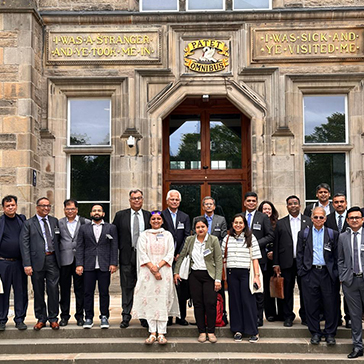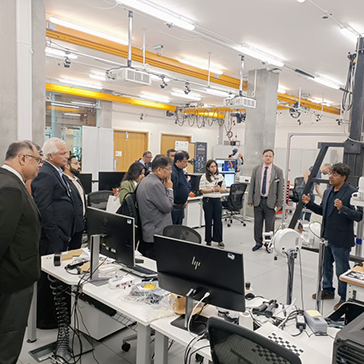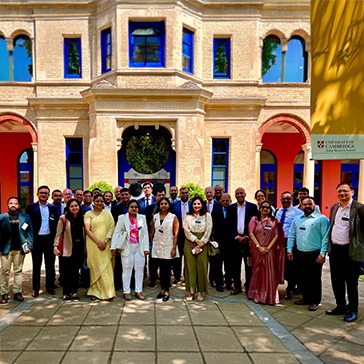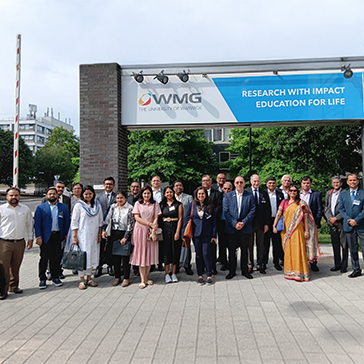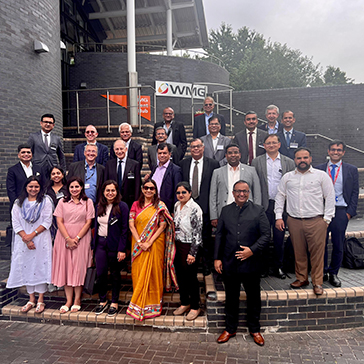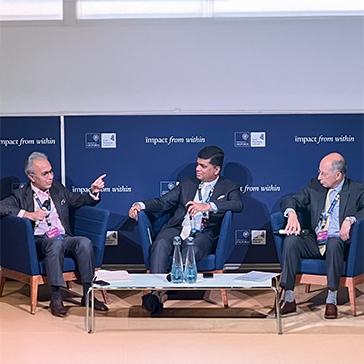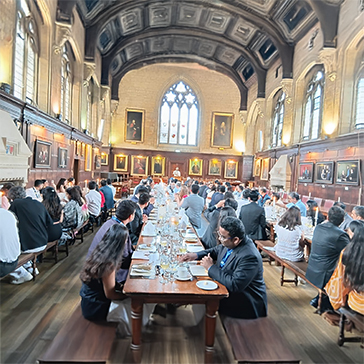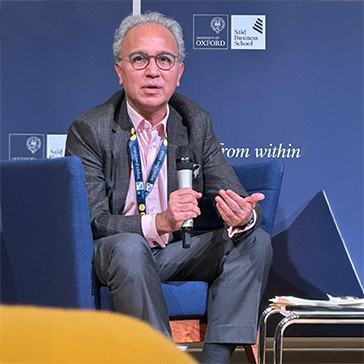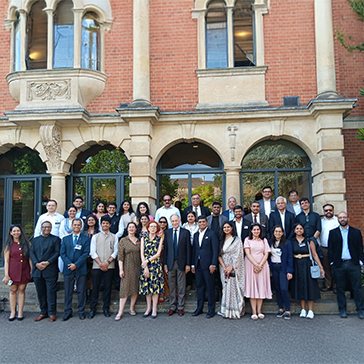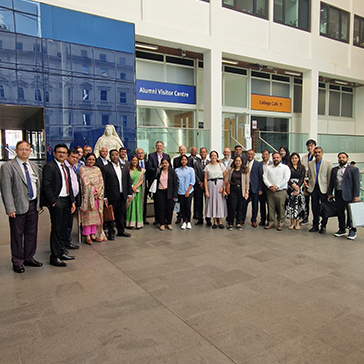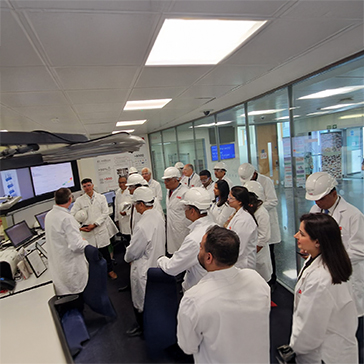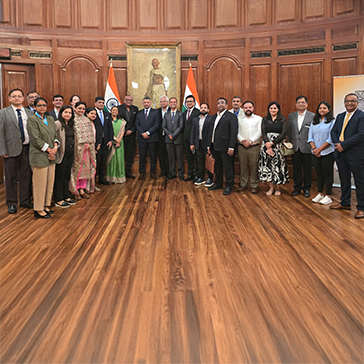Delegation
University of Edinburgh – 18 June 2025

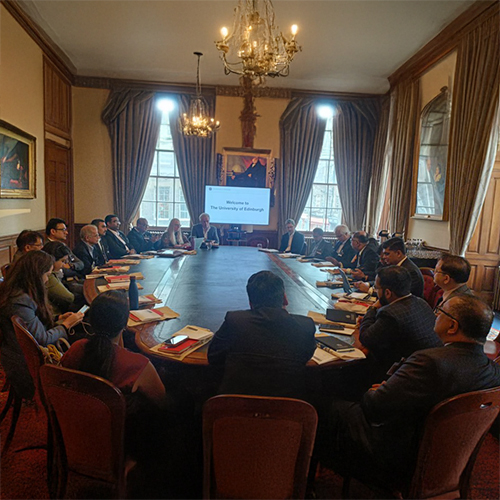
Background
R&D and Innovation Ecosystem
- Bayes Centre Visit The delegation, guided by Prof. Sethu Vijayakumar (Chair in Robotics and Director, Edinburgh Centre of Robotics), toured cutting-edge facilities in AI and robotics. Prof. Vijayakumar emphasized the Centre’s close industry collaboration, especially with SMEs, and its commitment to interdisciplinary innovation.
- Academic Leadership Roundtable Discussions led by Prof. Iain Gordon (Vice-Principal), Prof. Marion Thain (Director, Edinburgh Futures Institute), and Caroline Woodside (Director, Strategic Partnerships – Asia & Global, Edinburgh Innovations) showcased the university’s strong industry engagement model and innovation-led research strategy.
- Edinburgh Futures Institute (EFI) Dr. Alessandro Rosiello (Co-Director, Entrepreneurship and Innovation) presented EFI’s agenda for technological and societal transformation, highlighting cross-sectoral research and infrastructure support.
- Scotland–India Collaboration The day concluded with a roundtable focused on expanding academic partnerships between India and Scotland, covering student exchange, joint research, and value-driven co-designed programs.
University of Cambridge – 19 June 2025
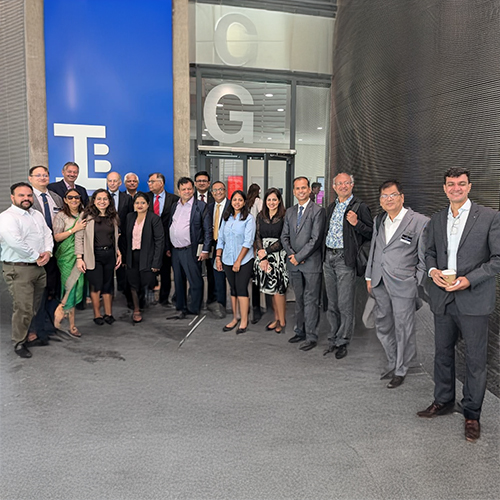
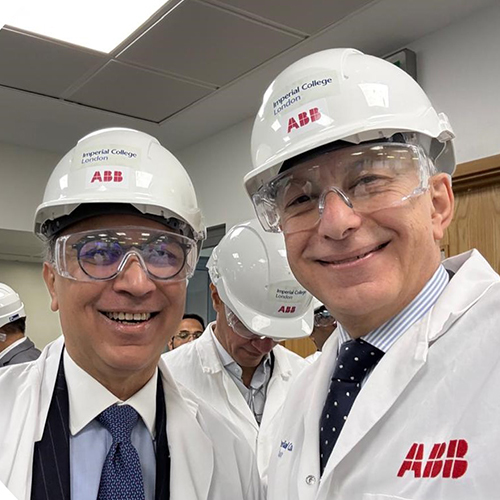
Background
R&D and Innovation Ecosystem
- Educational Philosophy Prof. Bhaskar Vira (Pro Vice-Chancellor for Education) elaborated on Cambridge’s interdisciplinary model and its emphasis on social impact.
- University–Industry Interface Cambridge’s strengths lie in deep tech, including AI, robotics, quantum computing, and drug discovery. Cambridge Enterprise plays a pivotal role in translating research into commercial applications.
- Judge Business School Prof. Gishan Dissanaike presented insights into curriculum evolution aligned with technology trends and market needs.
- Institute for Manufacturing (IfM) The delegation engaged with researchers working on advanced manufacturing, critical minerals, and discussed potential Indo-UK research collaboration.
Warwick Manufacturing Group (WMG), University of Warwick – 20 June 2025
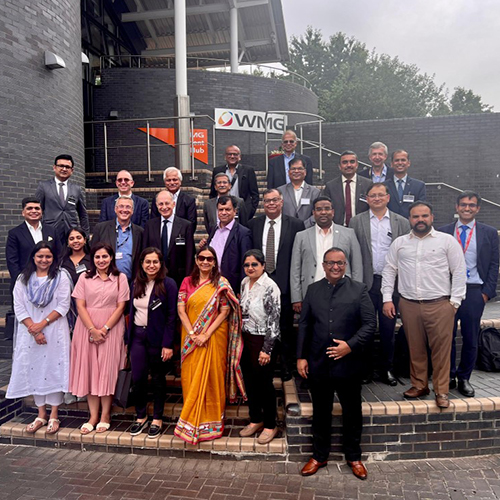
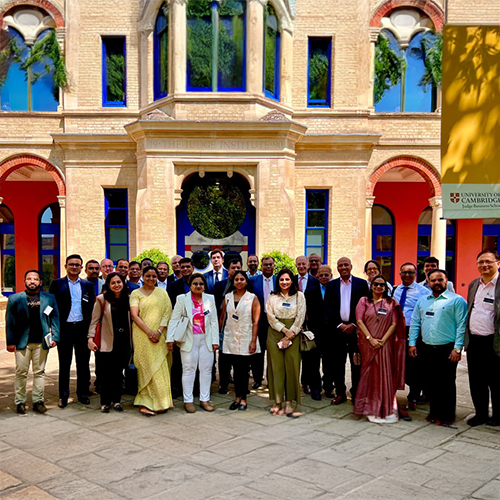
Background
R&D and Innovation Ecosystem
- Strategic Discussions Prof. Stuart Croft (Vice-Chancellor) highlighted WMG’s research focus on the circular economy, sustainable agriculture, and last-mile delivery innovations.
- Industry Engagement & IP Model WMG’s approach is to allow industry ownership of IP from sponsored research which was presented as a model for impactful and sustained collaboration.
- Safe Autonomy Research Centre The delegation visited the lab to explore simulation tools and safety strategies for the integration of autonomous vehicles into public systems.
Oxford India Forum, Saïd Business School, University of Oxford – 20 & 21 June 2025
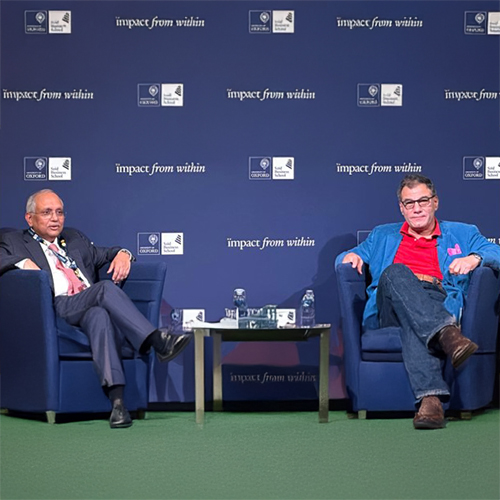
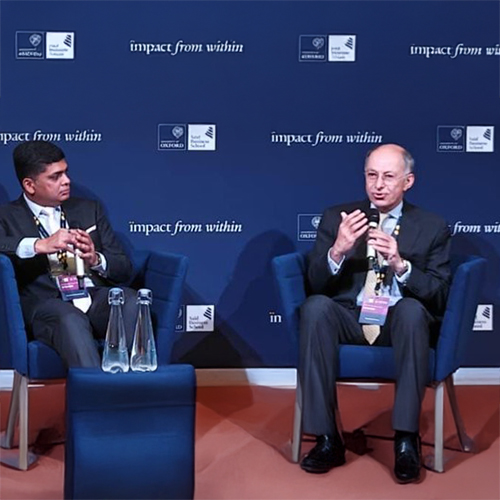
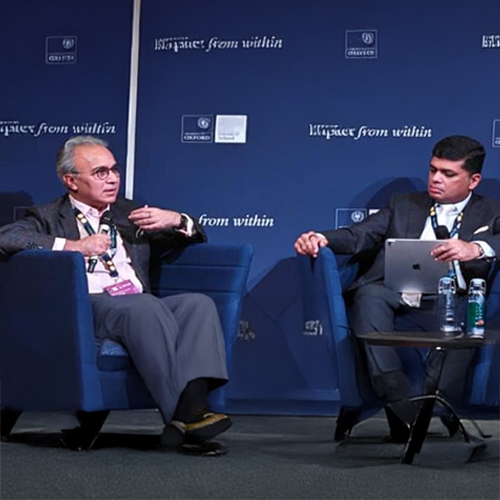
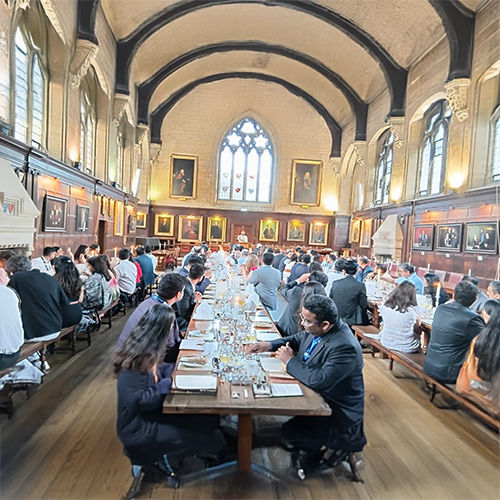
Background
R&D and Innovation Ecosystem
- Research Showcase Presentations highlighted work across healthcare, public policy, AI, robotics, and sustainability, with a focus on actionable social innovation.
- Oxford Innovation Hub Delegates explored Oxford’s infrastructure for supporting startups and science-based businesses in frontier technologies.
- Somerville College Visit Hosted by Baroness Janet Royall, discussions focused on India–UK collaboration and plans for a Tata Group-supported India-focused research centre.
- Closing Dinner A formal dinner celebrated the growing Indo-UK academic partnerships.
Imperial College London – 23 June 2025
Background
R&D and Innovation Ecosystem
- Innovation Hub Imperial’s campus is a central innovation hub integrating researchers, entrepreneurs, and industry experts.
- Imperial Business Partners (IBP) This program links businesses with Imperial’s researchers, startups, and student talent to foster impactful collaborations.
- Enterprise Lab Provides end-to-end support for students and staff to incubate ideas and build startups and scale-ups.
Key Points
Visit to H.E. Mr Vikram Doraiswami, High Commissioner of India to the UK
India’s technology and innovation programs are rooted in socio-economic outcomes across domains like space, atomic energy, green transition, and AI.
Education is central to unlocking India’s demographic dividend, requiring coordinated efforts by academia, industry, and government.
The UK’s aging demographic presents strategic opportunities for Indo-UK collaboration in higher education and long-term market access.
Indian institutions and British universities can leverage this complementarity to develop joint research programs and sustainable innovation ecosystems.
University College London (UCL)
Background
R&D and Innovation Ecosystem
- Innovation & Knowledge Exchange UCL promotes innovation and knowledge exchange with a strong emphasis on societal and economic impact.
- Entrepreneurial Culture It fosters an entrepreneurial culture through accelerators, venture support, and capacity-building programs.
- Global Collaboration A notable example is its collaboration with Newgiza University, Egypt, in developing engineering and health sciences curricula.
- Student Startups UCL supports over 500 active student-led startups, integrated with academic coursework and entrepreneurial mentoring.
Delegation Composition
Key Takeaways

India as a Strategic Partner
UK institutions recognize India as a vital partner in shaping future research, education, and talent ecosystems.

Shared Challenges
Both nations grapple with similar hurdles in academia–industry collaboration, particularly around IP frameworks, scalability, and long-term engagement.

Focus on AI and Deep Tech
Major UK investments in AI, LLMs, quantum technologies present promising areas for Indo-UK research collaboration.

Policy and Practice Synergies
UK models of flexible IP management, interdisciplinary curricula, and robust innovation ecosystems offer valuable insights for Indian stakeholders.

Specific Areas of Partnership
Joint research, student and faculty exchange programs, along with capability-building courses, are key areas of potential collaboration between Indian and British academia for fostering robust industry–academia collaboration.
University Visits
University of Edinburgh
University of Cambridge
University of Warwick
University of Oxford
Imperial College London
University College London (UCL)*
Delagation Photos
University of Edinburgh
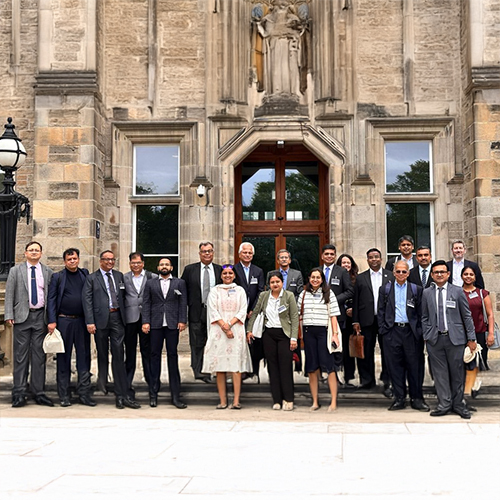

Warwick Manufacturing Group


University of Cambridge


Oxford India Forum, Saïd Business School, University of Oxford – 20 & 21 June 2025




Gallery
